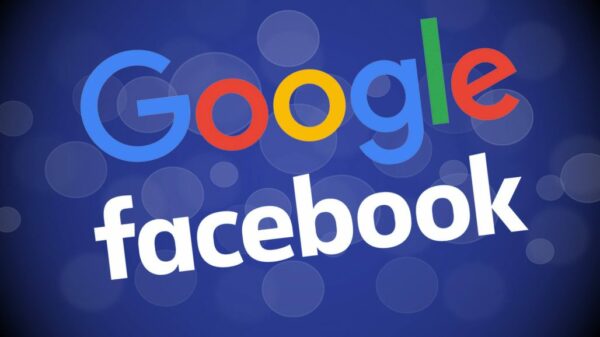Difference between SEO and PPC in Online Marketing

The presence of online businesses is increasingly vital. To achieve success in online marketing, effective strategies such as Search Engine Optimization (SEO) and Pay-Per-Click (PPC) are essential.
The importance of SEO and PPC in online marketing strategies cannot be ignored. In this article, we will explain the differences between SEO and PPC in online marketing and the significance of utilizing PPC ads to enhance visibility and obtain quick results.
By understanding and implementing both SEO and PPC, you can gain significant advantages in terms of traffic, rankings, and profits in the digital realm.
SEO (Search Engine Optimization)
Search Engine Optimization (SEO) refers to a set of techniques and strategies used to improve a website’s ranking and visibility in search engine results such as Google. In the world of online marketing, SEO is crucial because it helps businesses increase organic traffic and optimize sales conversions.
Definition and Basic Concept of SEO
SEO is the process of improving the quality and quantity of traffic to a website through efforts that do not require payment.
Techniques used include selecting relevant keywords, optimizing site structure, enhancing content, and applying other technical strategies to make the website easier for search engines to discover.
Factors Affecting SEO Ranking
SEO rankings are influenced by several factors, including content quality, a site structure that is understandable by search engines, page load speed, quality backlinks, and good user experience. Additionally, search engines like Google also consider the reputation and authority of a website when determining SEO rankings.
Effective SEO Optimization Techniques
Several effective SEO techniques include selecting relevant keywords related to content, writing engaging meta tags, using SEO-friendly URLs, creating high-quality and original content, and improving both internal and external site structure.
Read Also: Semantic SEO: SEO Optimisation for Semantic Search Engines
Benefits and Advantages of Using SEO
Using SEO offers numerous benefits for businesses. By improving SEO rankings, a business’s website will receive more relevant organic traffic, boost its visibility in search engines, and generate higher sales conversions.
By optimizing SEO, businesses can increase their online exposure and establish a strong reputation in their industry. SEO is a crucial strategy that businesses must consider to optimize their potential in online marketing.
PPC (Pay-Per-Click)
Pay-Per-Click (PPC) is a paid advertising model where advertisers pay each time a user clicks on their ad. It is one of the most effective strategies in online marketing to boost visibility and drive relevant traffic to a business’s website.
Definition and How PPC Works
PPC stands for Pay-Per-Click, meaning advertisers pay the publisher, such as Google, every time a user clicks on the ad displayed on a search engine results page or other platforms.
PPC ads can appear as both text and visual forms, allowing users to quickly view and click on ads that attract their attention. By leveraging PPC, you can place ads on search engine results pages or other platforms and only pay when users actually click on the ad.
Commonly Used PPC Platforms
Several platforms are commonly used for PPC ads, one of which is Google Ads. Google Ads is a platform that allows advertisers to create PPC ad campaigns that appear on Google search result pages and Google partner sites.
Another popular PPC platform is Facebook Ads, which allows advertisers to target users on the social media platform Facebook.
Read Also: 4 Facts Before Using Adwords Services
Steps to Run a PPC Ad Campaign
To run an effective PPC ad campaign, you need to follow several steps:
- Set campaign goals and define your target audience clearly.
- Conduct keyword research relevant to your product or service to ensure your ads are shown to the right audience.
- Create compelling ads with attention-grabbing headlines and informative descriptions.
- Set your budget and bids accordingly for the ad campaign.
Benefits of Using PPC
PPC offers several advantages in online marketing. First, PPC ads allow you to gain traffic quickly because your ads will be displayed on search engine result pages or other platforms based on your target audience’s preferences.
Second, you can control your ad costs since you only pay when a user clicks on your ad. This allows businesses with smaller marketing budgets to take advantage of PPC without incurring high costs.
Additionally, PPC allows you to track and measure your ad results in detail, including the sales conversions generated, so you can optimize your campaigns for better results.
Should You Use SEO or PPC?
SEO is a good option if you want to increase your website’s visibility organically and achieve sustainable traffic without having to pay for ads. SEO is the result of optimizing your website and content to improve rankings on search engines like Google.
On the other hand, PPC is a paid advertising option ideal for businesses that need quick and measurable results. If you want to appear at the top of search engines for specific keywords or reach a more targeted audience, PPC is the right choice.
However, SEO and PPC can complement each other in achieving business goals. By leveraging SEO, you can build your reputation and increase your website’s organic visibility.
SEO helps attract relevant organic traffic to your products or services, leading to higher sales conversions in the long run. Meanwhile, paid ads like Google Ads or social media ads can help you reach your target audience quickly.
When choosing the right strategy, it’s important to consider the type of business you run, the marketing budget you have, and the goals you want to achieve.
Both SEO and PPC have their strengths and weaknesses, so it’s essential to compare both strategies and choose the one that best aligns with your goals to succeed in online marketing.





